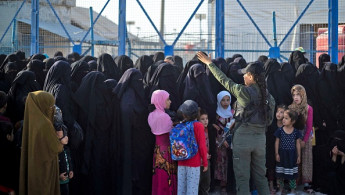Canada repatriates 14 citizens from Islamic State camps in Syria
Canada repatriated four women and 10 children from Islamic State camps in north-eastern Syria this week, police said on Friday.
This is the fourth repatriation operation conducted by the Canadian government of its nationals held in camps under Islamic State (IS) control in Syria.
Three of the women were arrested at the airport before appearing in court on a "terrorism peace bond application", a type of restraining order, police said in a statement.
One of them, an unidentified 38-year-old woman, was transported to Alberta in western Canada and released on bail pending a hearing on conditions of her status.
"This is not a criminal charge," her lawyer, Lawrence Greenspon, told AFP, adding that the prosecutor will want to "ensure that the person follows the conditions for a period of up to one year."
The other two, Ammara Amjad and Dure Ahmed, "will remain in custody until their next hearing, which is scheduled for Tuesday," police added.
"Everything was good" regarding the fourth woman, said Greenspon, who is representing all four repatriated women.
She faces neither criminal charges nor a request for a peace bond on terrorism.
"The 10 children are repatriated and are with their families here in Canada," the lawyer added.
Canada's Foreign Affairs Department said Thursday it was concerned for the "health and well-being" of the Canadian children following the "deteriorating conditions in the camps" where they were confined until recently.
Last October, Canada repatriated two women and two children held in Syria, and in 2020, Ottawa allowed the return of an orphaned five-year-old girl, after her uncle filed a lawsuit against the government.
Since the end of the "caliphate" established by the IS group in Syria, many countries have been reticent to accept the repatriation of women and children of jihadists.





 Follow the Middle East's top stories in English at The New Arab on Google News
Follow the Middle East's top stories in English at The New Arab on Google News


